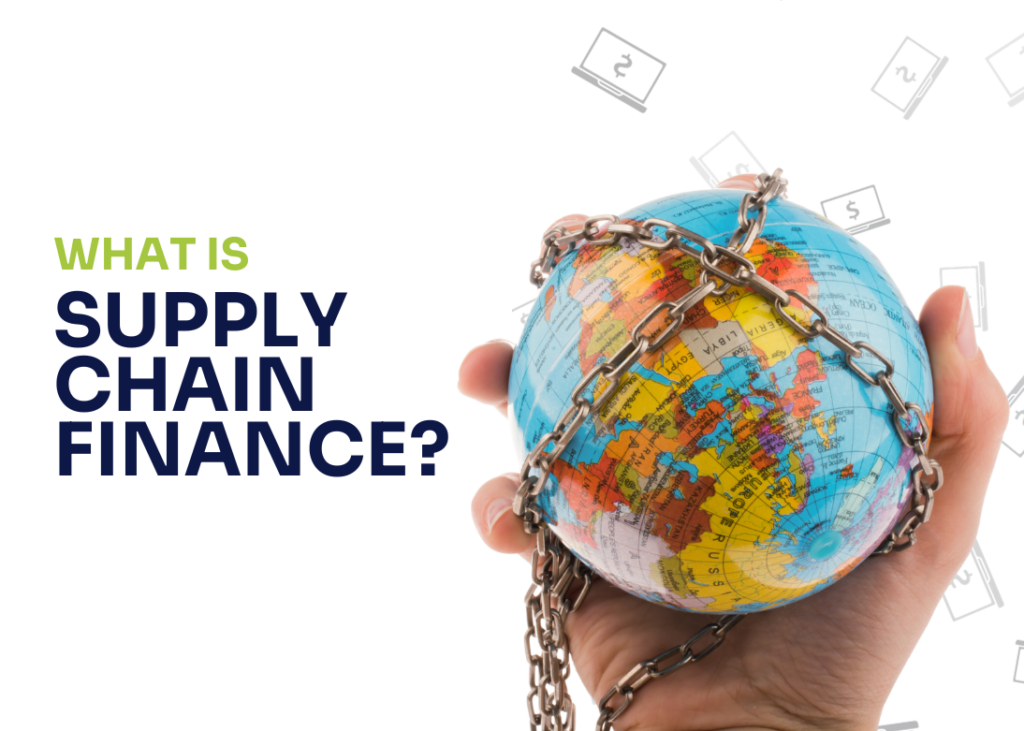
In this fast-paced and ever-changing business world, businesses must constantly adapt in order to stay competitive. Supply chain finance (SCF) has emerged as an essential component of business operations, assisting businesses in optimising their supply chains and improving their bottom lines. With market globalisation and supply chain complexity increasing, the demand for efficient and effective supply chain finance solutions is greater than ever.
To meet this challenge, businesses are turning to digital technologies to streamline their supply chain finance processes. With the use of fintech SCF solutions businesses can gain real-time insights into their supply chains, identify potential risks and opportunities, and make data-driven decisions. Supply chain finance providers can now offer services to businesses that lacked access to financial resources in the past, thanks to the increasing digital connectivity between even the smallest businesses.
In this article, we will look at how fintech solutions are changing supply chain finance and the benefits they offer their users. Understanding the role of digital technologies in supply chain finance is critical to staying ahead of the competition in today’s rapidly changing business landscape, whether you are a small business owner or a supply chain executive at a large corporation.
Fintech companies are quietly revolutionising the world of supply chain finance
Supply chain finance platforms help bridge the liquidity gap by providing access to finance to small and medium-sized enterprises (SMEs) which often face challenges in obtaining funding from traditional sources.
By harnessing the power of technology, supply chain finance companies are effectively resolving longstanding tensions between buyers and suppliers. They are streamlining the process of supply chain finance by increasing efficiency and releasing liquidity for both parties involved. This means buyers can pay later without affecting their suppliers’ cash position, while suppliers can opt to receive early payments.
As intermediaries between suppliers and buyers, fintech SCF companies have introduced a system that benefits both parties. These companies are making significant strides in various industries by improving working capital, reducing costs, and offering more favourable payment terms.
The Benefits of Fintech Solutions in Supply Chain Finance
The integration of digital technologies has revolutionised supply chain finance, offering businesses a multitude of benefits that can enhance the efficiency of their financial management procedures. Some of the key advantages of digital technologies in supply chain finance are as follows:
Improved cash flow and optimised working capital
By utilising digital supply chain finance platforms, businesses can benefit from optimised working capital through improved cash flow management. With the ability to quickly access early payment options and sell invoices with just a click of a button, businesses can streamline their payables and receivables processes, improving liquidity and cash flow regardless of the previously agreed payment terms between the buyer and the supplier.
Better financing conditions
Businesses can receive financing at lower rates and better terms compared to traditional financing methods. By accessing improved financing methods through digital supply chain finance solutions, businesses can effectively manage their finances and allocate their resources toward growth and development initiatives. This can lead to increased profitability and competitiveness in the market.
System integration
Another significant benefit of digital supply chain finance is the ability to integrate with other systems and technologies, such as enterprise resource planning (ERP) systems, transportation management systems (TMS), and warehouse management systems (WMS). By integrating with these systems, businesses can create a seamless and integrated supply chain management system, reducing duplication of effort and improving efficiency.
Ease of use and smooth onboarding process
Fintech supply chain platforms have been designed for easy accessibility by all parties, enabling users to effortlessly navigate through multiple features and functionalities without extensive training. These platforms utilise technology to provide faster, simpler, and more efficient onboarding processes, which is a sharp contrast to traditional supplier programs.
Real-time visibility and transparency
Businesses can gain greater visibility and control over their supply chain finance operations thanks to digital technologies. Both suppliers and buyers can keep track of their invoices at all times using real-time data and analytics. This includes tracking the status of the invoice and ensuring that it is approved and paid within the timeframe agreed upon, resulting in increased transparency at all stages.
Greater efficiency and cost savings
By streamlining supply chain finance operations through digital technologies, businesses can achieve greater efficiency and reduce costs associated with manual processes.
Paperless processes
Digital supply chain platforms have a distinct advantage over traditional invoice factoring in that they eliminate paperwork. This has the dual benefit of reducing the physical paperwork required while also reducing the potential for errors.
Proactive risk management
Digital supply chain finance helps businesses manage risk in their financial operations. Real-time data and analytics allow businesses to identify potential risks in their supply chain finance operations and take proactive measures to mitigate them. This helps businesses protect their financial stability and reputation.
Automation and machine learning
Automation and machine learning are key components of digital supply chain finance, which can help reduce the need for manual intervention and improve accuracy. With the automation of manual processes, businesses can reduce processing times and the potential for errors, saving time and reducing costs. Additionally, machine learning algorithms can analyse data from past transactions, identifying patterns and predicting future trends.
Conclusion
The integration of financial technology into supply chain finance has transformed the way businesses manage their financial operations. Fintech solutions have offered businesses numerous benefits, ranging from improved cash flow management to better financing conditions, system integration, and ease of use. By utilising digital supply chain finance platforms, businesses can streamline their financial processes, reduce costs, and optimise their working capital. Additionally, real-time data and analytics provide businesses with greater transparency and control over their supply chain finance operations, allowing for proactive risk management and improved efficiency. With the constant evolution of technology, businesses must stay up-to-date with the latest fintech solutions to remain competitive in today’s fast-paced business world.

